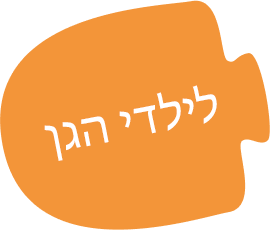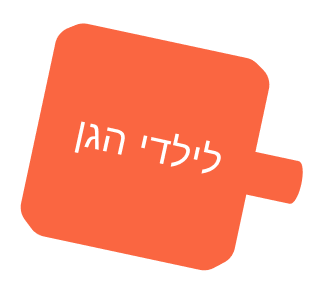The KIBO kit, accompanying curriculum, and professional development materials are based on rigorous research conducted with thousands of children, parents, and teachers. KIBO is commercialized by KinderLab Robotics, and therefore is available worldwide in over 65 countries. The philosophy behind KIBO’s design, the pedagogical approach, and examples of classroom uses can be found in Prof. Bers’ books.
KIBO has been used in a variety of empirical research studies conducted by the DevTech Research Group to understand children’s development of programming, robotics skills and computational thinking in school settings and non-formal learning environments across the world. Research has looked at gender differences, and socio-emotional learning through robotics. In addition, research was conducted with a variety of populations, including children who are multilingual, children who are experiencing homelessness, and children diagnosed with autism spectrum disorder.
Research Projects
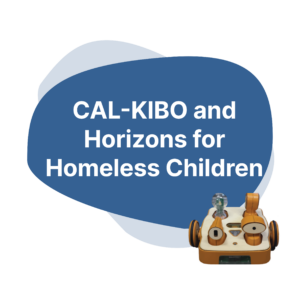
About
“Bringing Coding and Robotics Education to Children Experiencing Homelessness,” is a collaboration with Horizons for Homeless Children in Boston, MA to explore the use of KIBO robotics and the CAL KIBO curriculum in preschool classes serving 3-5 year old children experiencing homelessness. The project explores 1) how teaching KIBO with the CAL curriculum leads to growth in coding and computational thinking knowledge and 2) how teaching KIBO impacts children’s language, social-emotional, and approaches to learning development.
Now in our second phase of this collaboration, we are exploring what resources teachers need and how teachers can best support children in multilingual classrooms and English-language learners in their robotics learning.
Implementation
In the first phase of the CAL-KIBO at Horizons for Homeless Children collaboration, teachers from six early childhood classrooms at Horizons for Homeless Children took part in a hybrid-format professional development training and taught the CAL-KIBO Pre-K curriculum in their classrooms.
In the second phase of the CAL-KIBO at Horizons for Homeless Children collaboration, we are responding to teacher feedback and offering all teacher trainings in Spanish. Additionally, the entire CAL-KIBO Pre-K curriculum and related resources are now available in Spanish on the Coding as Another Language website. Eight bilingual early childhood classrooms, including two toddler classrooms, will be exploring and teaching the CAL-KIBO Pre-K Curriculum in English and Spanish.
Impact
For DevTech’s Publications on this work visit our Papers page.
Media Gallery
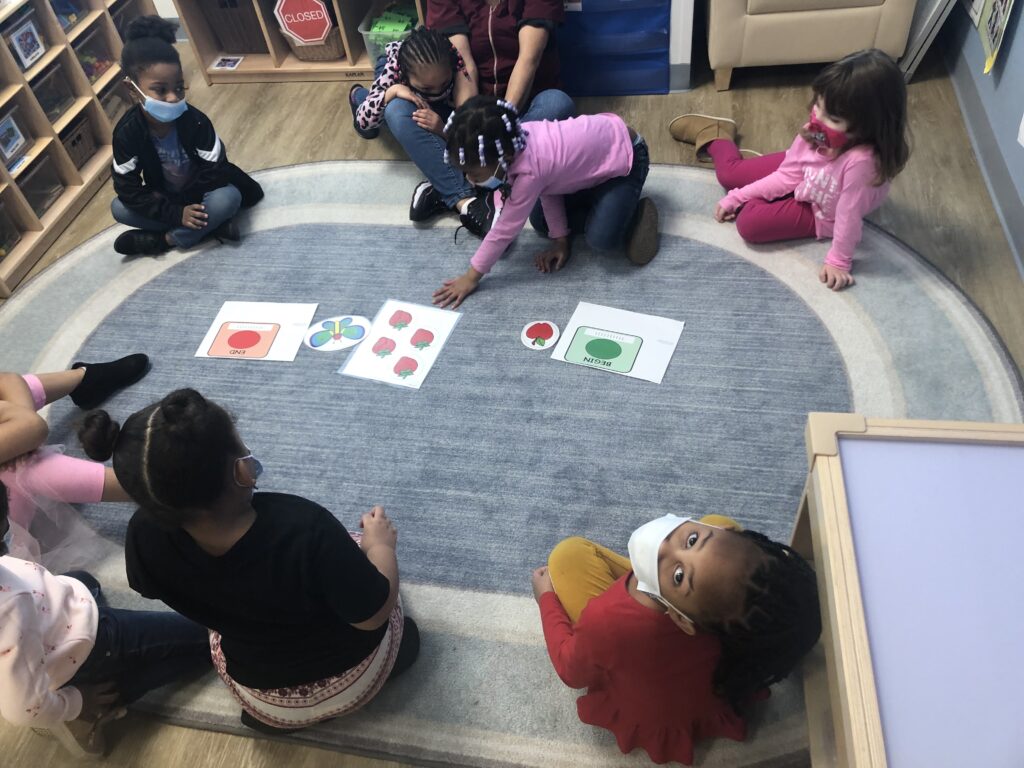
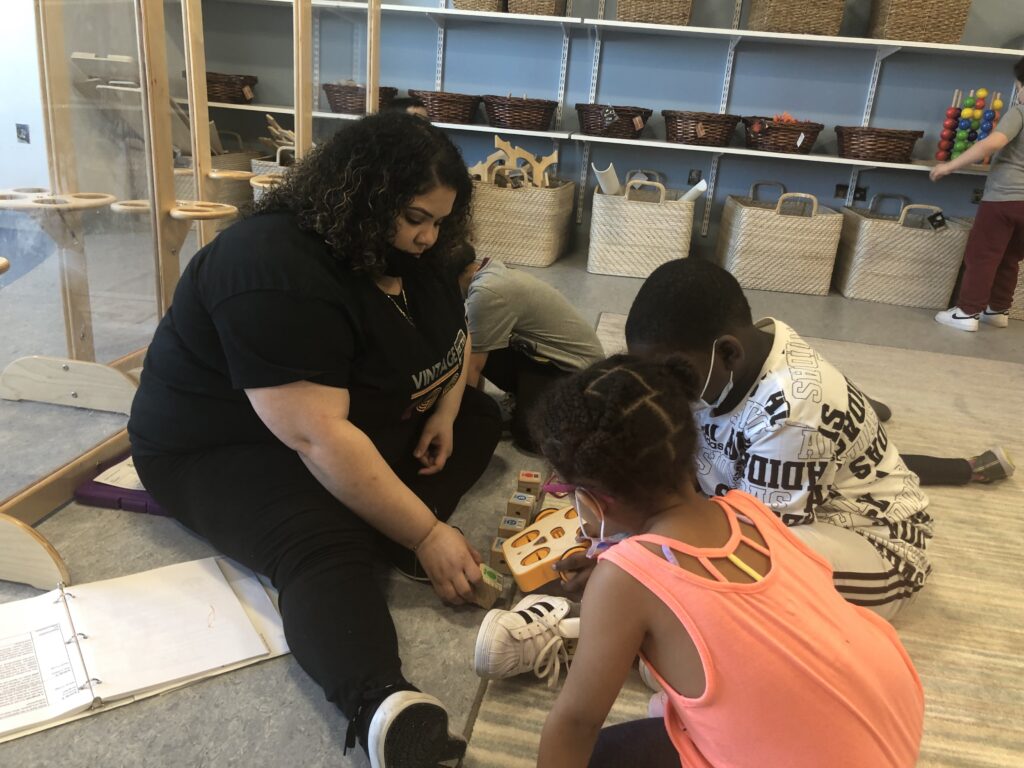
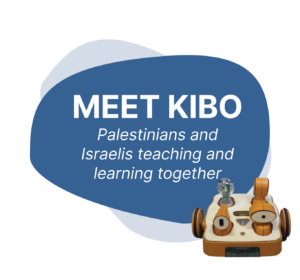
About
The MEET KIBO – Jerusalem project is a partnership between the DevTech Research Group with MEET (Middle East Entrepreneurs of Tomorrow) and the Jerusalem International YMCA. In this project, teenage alumni of MEET, a multiyear program for Israeli and Palestinian high school students to study computer science and entrepreneurship together, are teaching KIBO robotics to kindergarten students at the Jerusalem International YMCA. The project is exploring questions of how a coding environment can serve as a bridge across ages, nationalities, and languages.
This project utilizes the Coding as Another Language KIBO curriculum for Kindergarten. The curriculum integrates storytelling, play, songs, and games to teach robotics, coding and computational children to young children. Children create multiple KIBO projects over the course of the curriculum, including retelling story books and creating dances using the KIBO robotics platform. The curriculum is taught in both Arabic and Hebrew.
Team
The project is lead by the Principal Investigator, Prof. Marina Umaschi Bers, professor at the Lynch School of Education at Boston College, formerly at Tufts University, and head of the DevTech Research Group.
Tess Levinson, a Doctoral Research Assistant in the DevTech Research Group, is the Boston College project coordinator. She is a PhD student in the Applied Developmental and Educational Psychology program at the Lynch School of Education.
In the region, the local project coordinator is Loai Qubti. Loai is the Computer Science Curriculum Lead at MEET, Mustafa Hussein is the Student Program Director of MEET and Yaniv Sagee is the CEO of MEET.
Rawan Sabbah Munayer is the on-site coordinator at the Jerusalem International YMCA.
Dr. Zvi Bekerman is a project advisor. He teaches anthropology of education at the School of Education, Hebrew University of Jerusalem, and is a faculty member at the Mandel Leadership Institute in Jerusalem.
Impact
Coding as a Bridge and Shared Society
Two components of the education for a shared society philosophy are shared goals and an equitable relationship in the environment. These features were experienced by the teenagers in the MEET-KIBO project through their shared making experiences and the shared novelty of teaching robotics to young children. By incorporating the shared society model with the coding playground philosophy, this project created not only a coding playground, but a Coding Bridge. Rather than self-directed personally-meaningful projects, students worked towards shared goals for their personally meaningful projects, which led to not only the development of positive individual social behaviors but also to genuine and equitable friendships.
Response to Ongoing Conflict
After the events of 10/7, the MEET organization saw in its fledgling KIBO program an opportunity for MEET alumni to give back to the community in need, and an opportunity for the organization to take meaningful action supporting those directly affected by the events of 10/7 and the war. From this, MEET created a KIBO program for displaced children from the cities and kibbutzes near Gaza or near the Lebanon border. Teams of Israeli or Palestinian teenagers visit hotels where displaced Israeli or Palestinian children are staying and run 3-4 hour KIBO lessons for mixed-age groups of children. Two of the four MEET-KIBO alumni (one Palestinian and one Israeli) are involved in the project, and one is now the project lead.
For DevTech’s Publications on this work visit our Papers page.
Media Gallery
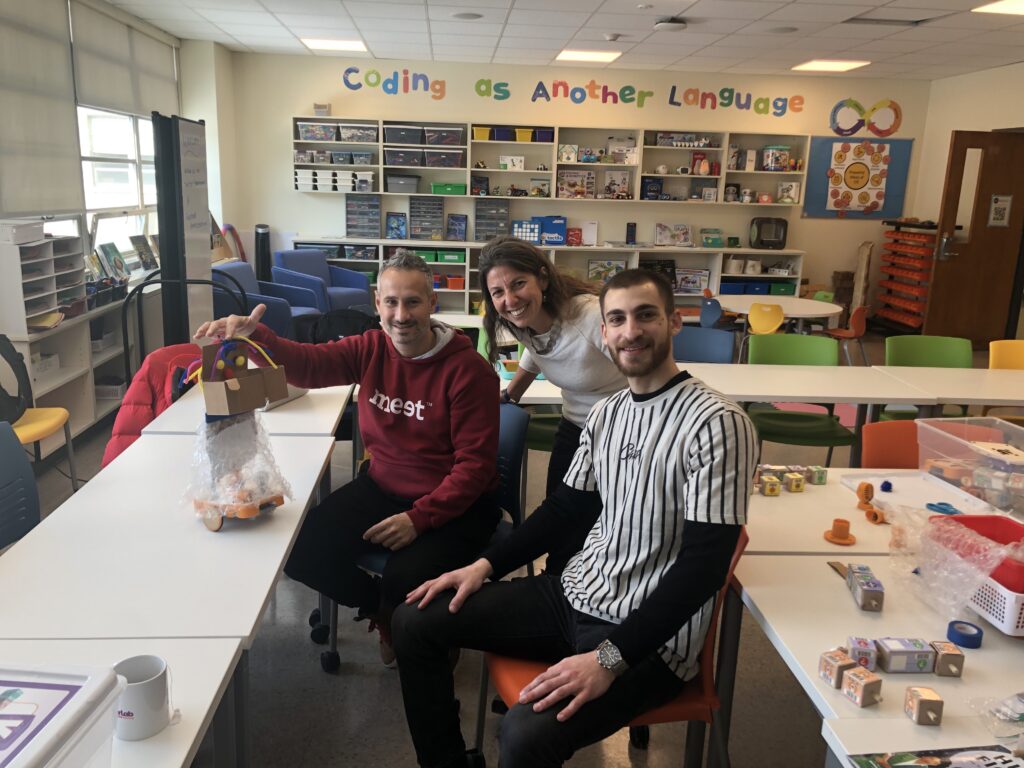
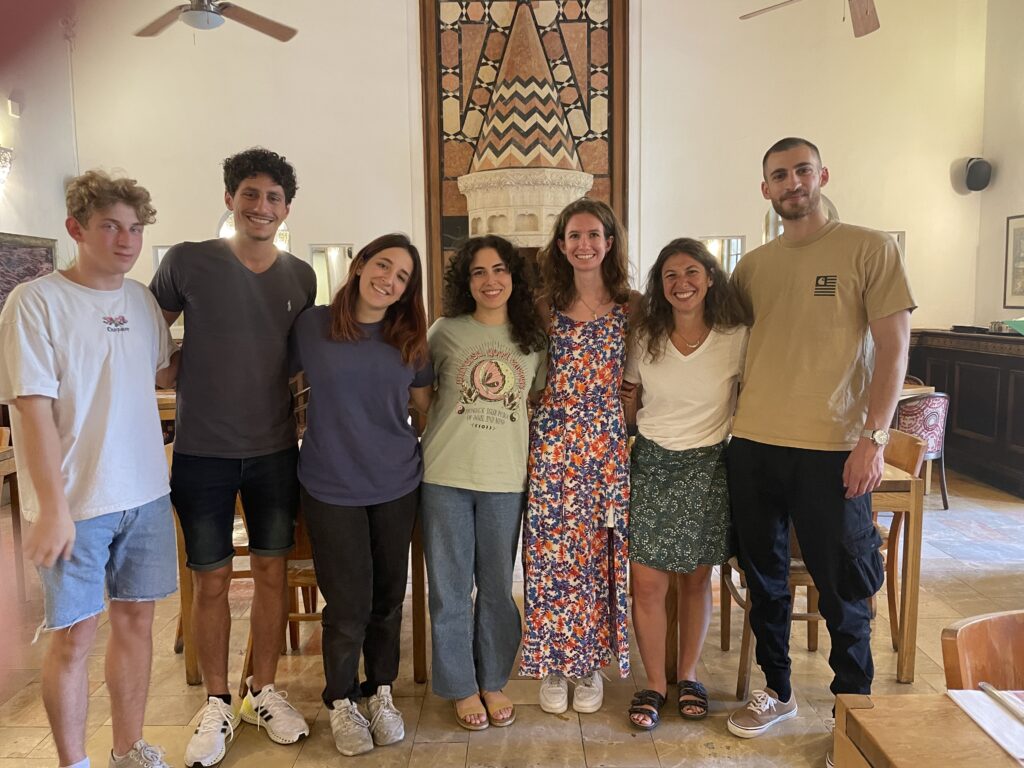
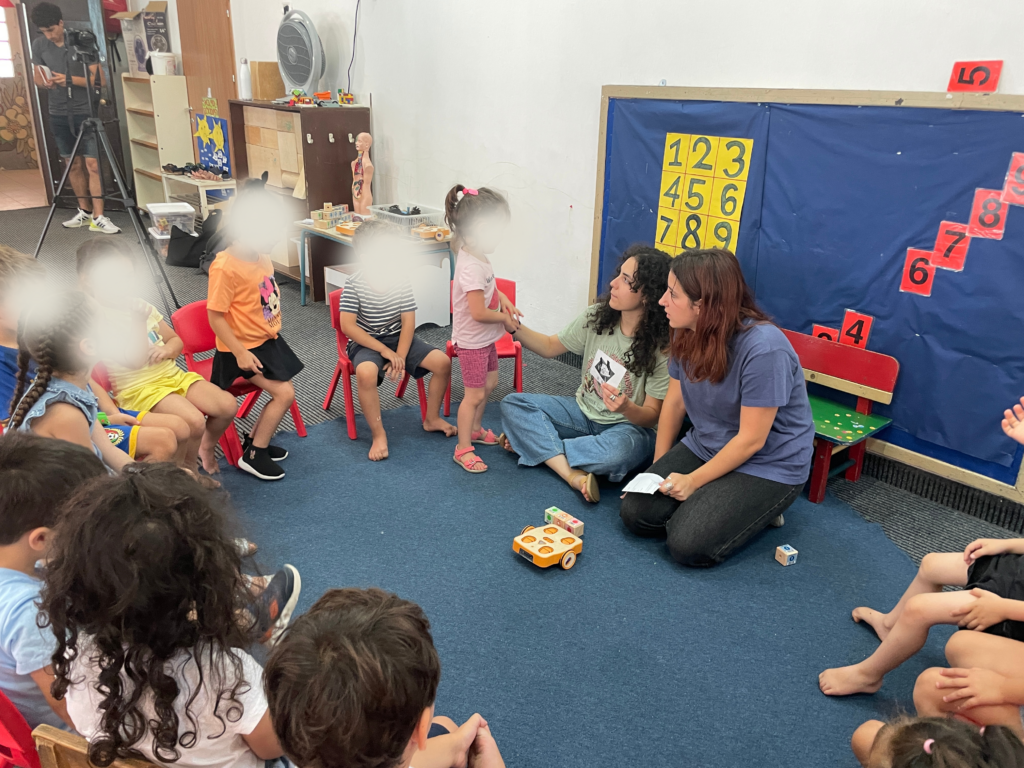
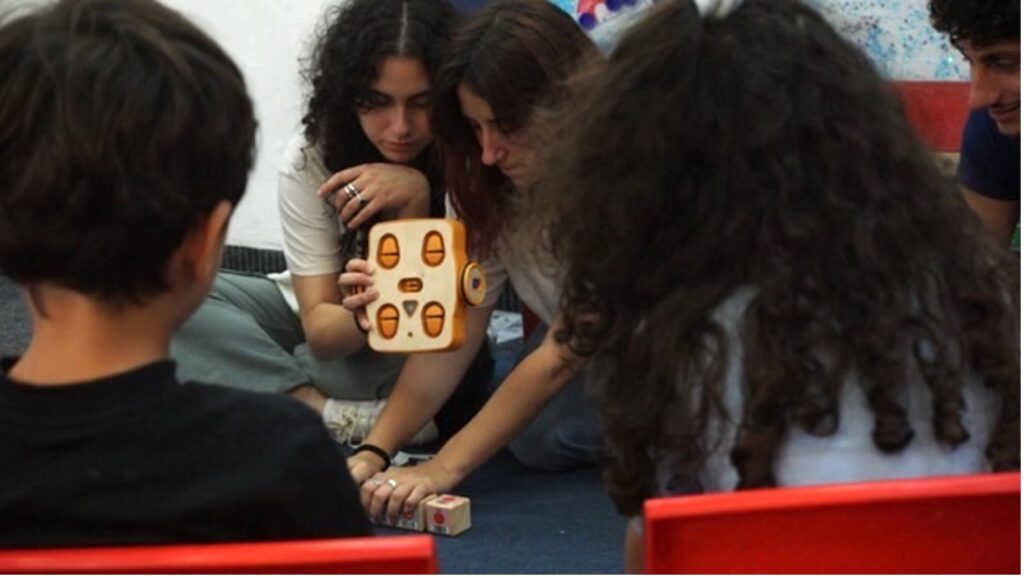
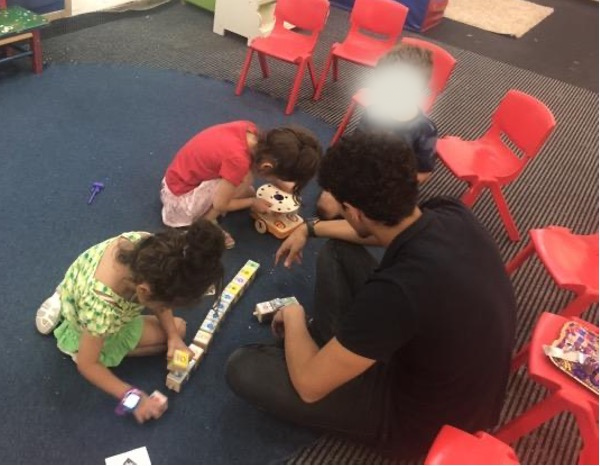
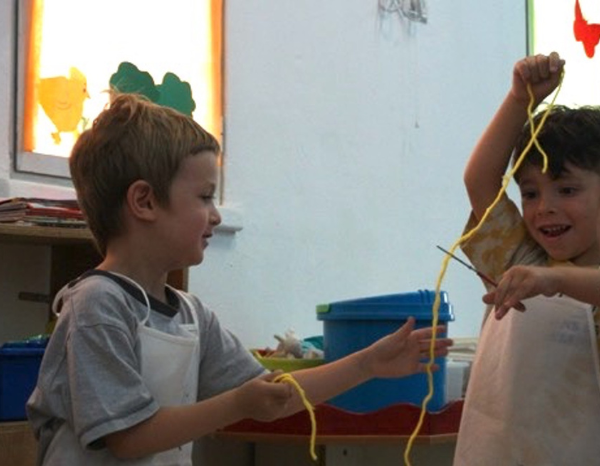
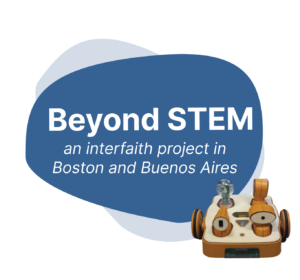
About
The Beyond STEM: The Development of Virtues in Early Childhood Education Through Robotics project — funded by the Templeton World Charity Foundation — explores these questions by working with faith-based and secular kindergarten classrooms in Boston, United States and Buenos Aires, Argentina.The program utilizes the KIBO robotics kit designed for young children aged 4-7 years old by the DevTech Research Group and commercialized by KinderLab Robotics.
Here is a video that tells the story of the project and shows both teacher’s and children’s resulting robotics projects. Here is a website displaying the final robotic projects created by the different kindergarten classrooms.
Here is a blog written by teachers in one of the participating schools.
To read publications on this project please visit DevTech’s Papers page.
Team
The project was led by the Principal Investigator, Prof. Marina Umaschi Bers, professor at the Lynch School of Education at Boston College, formerly at Tufts University, and head of the DevTech Research Group.
Since the project involves working with interfaith groups, an advisory board composed of experts in the field of education with a strong grounding on their own respective faiths provides invaluable guidance both designing the intervention and analyzing data.
The advisory board is formed by:
Dr. Ziva Hassenfeld, an Assistant Professor of Jewish education at Brandeis University. She earned her doctorate from the Stanford University Graduate School of Education in Curriculum and Teacher Education and did a postdoc at the DevTech Research Group at Tufts University. Besides literacy research she has extensive background in studying, teaching, and researching the learning of Jewish sacred texts.
Dr. Mona Abo Zena, is an Assistant Professor in Early Childhood Education and Care, College of Education and Human Development at the University of Massachusetts, Boston. Her research focuses on the role of religion and spiritual development (broadly defined) as a way of knowing and being and as a particular cultural fund of knowledge that affects learning and development. Her work is informed by over 20 years of teaching, administrative, and board experiences in P-16 educational contexts.
Dr. Frank DeVito, the Education Director and Co-Founder of Equity Lab Charter School. Equity Lab is a project-based learning school where students use an equity-centered design process to problem-solve challenges in their communities. He was also a candidate for the Roman Catholic priesthood and studied at the Gregorian Pontifical University in Rome, Italy.
In Argentina, the program coordinator is Valeria Larrart. Valeria is an elementary school educator who specializes in new learning technologies, STEAM and making activities. She holds a license in educational technologies and is co-founder of iLAB and Edumakers.
The participating schools in Boston are: Jewish Community Day School; Al Bustan at Malik Academy, Our Lady’s Academy, and the Eliot-Pearson Children’s School.
The participating schools in Buenos Aires are: Escuela Comunitaria Arlene Fern, Colegio Rey Fahd, Colegio Cardenal Copello, JIN E DE 17 Juana Manso, and Colegio Cardenal Copello.
Impact
This work comes at a time when there is a re-envisioning of STEM in early childhood education as well as a push for integrating coding at all levels of the educational system. Understanding the cognitive and neural basis of programming is key for developing learning trajectories in computational thinking, effective curricula, and policy recommendations for incorporating the teaching of computer science in the early years.
Media Gallery
Here is a video that tells the story of the project and shows both teacher’s and children’s resulting robotics projects. Here is a website displaying the final robotic projects created by the different kindergarten classrooms.

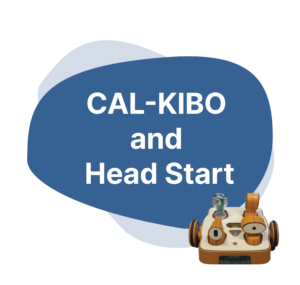
About
This project is collaboration with Urban League of Metropolitan St. Louis, and aims to explore the integration of KIBO robotics and CAL KIBO curriculum in Head Start centers in St. Louis, MO. The project explores how teaching and learning with CAL KIBO impacts children’s coding knowledge, as well as their academic and developmental competencies, and seeks to understand early childhood teachers’ evolving knowledge and attitudes around coding and robotics education.
Implementation
The project took place in 8 Head Start centers impacting hundreds of children through daily robotic activities and a Saturday STEAM academy.
Impact
For DevTech’s Publications on this work visit our Papers page.
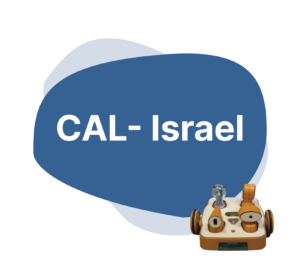
About
The DevTech Research Group at Boston College has partnered with the Mindful Learning Technologies Lab at the Technion Israel Institute of Technology to bring CAL to Israel. The project leads in Israel are Professor Rinat Rosenberg-Kima and doctoral student Avia Ben-Ari in collaboration with the Hod HaCarmel School.
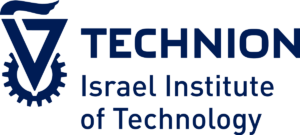
Implementation
The CAL-Israel study is implementing both CAL-ScratchJr and CAL-KIBO to two different kindergarten classrooms, with the hope of investigating the impact of the CAL curriculum across different modalities. The study design mirrors that of the CAL USA project.
Impact
This pilot study has reached 4 teachers and 30 kindergarten students in Haifa, Israel.
For DevTech’s Publications on this work visit our Papers page.
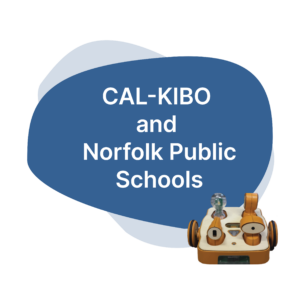
About
“Operation: Breaking the Code for College and Career Readiness” (funded by the Department of Defense) to explore best practices for professional development and curricular resources for coding through KIBO robotics and CAL KIBO curriculum in the Norfolk Public School District, Norfolk, VA, the first state in the US to formally mandate K-12 computer science education.
Implementation
This study was conducted with first and second grade classrooms in Norfolk, Virginia. A total of 667 students and 57 educators from eight elementary schools, as well as 181 students from two comparison schools participated
Impact
For DevTech’s Publications on this work visit our Papers page.
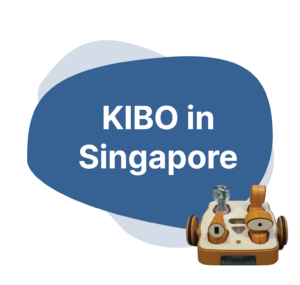
About
In 2015, 160 early childhood centers across Singapore completed a 7-week STEAM KIBO robotics curriculum entitled “Dances Around the World” as part of Singapore’s Playmaker Programme. This initiative aimed to create a “Smart Nation” and match international efforts to bring computer science and robotics into early childhood in developmentally appropriate ways. A mixed methods study was conducted to examine the impact of this program.
Implementation
This study was conducted with a sample of 98 children, ages 4-7, and their teachers from five of the early childhood centers in Singapore as part of the Playmaker Programme. This study was conducted to evaluate the outcomes of the implementation of the KIBO Robot, commercialized by KinderLab Robotics, and the “Dances From Around the World,” curriculum developed by the DevTech Research Group directed by Prof. Marina Bers. The study not only examined student outcomes in programming abilities and experiences, but also investigated the experiences and attitudes of teachers following the completion for a one-day professional development symposium and the implementation of the curricula in their classrooms.
Impact
The results of this study indicated that student programming abilities improved at the midtest and posttest, demonstrating a high level of mastery across all topics taught. Teachers’ attitudes improved, and they felt successful in implementing the curriculum and bringing robotics to their classrooms. Additionally, the project met the Playmaker Programme’s goals of promoting collaboration and creativity in young learners and educators, bringing robotics to early childhood in a developmentally appropriate manner, and promoting the creation of a Smart Nation.
Media Gallery
Visit our KIBO Video Gallery to see this project in action!

